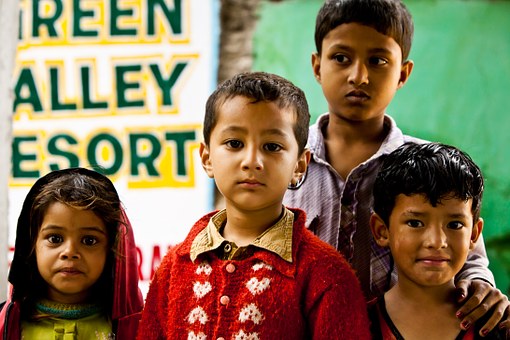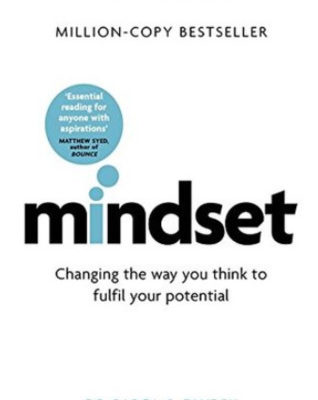How many children should one have? This is a very important question related to the future of the world which often elicits mixed reactions. There is a predominant view that mankind has opted for an overproduction of his species and unless checked the world is headed for ruin. Also, we read the stories from many parts of the world where governments are encouraging people to produce more babies as the population is shrinking there.
Perhaps this is also a question which remains linked to religious ideologies too. There are religious views which openly prohibit limiting the number of children one can have. There are religious doctrines which advocate that the procreation is the natural outcome of sex and they find it difficult to separate them or find it difficult to imagine any other purpose for sex. Recall the 1968 encyclical of Pope Paul VI which rejected artificial contraception. The encyclical proposed natural family planning methods to limit the size of families. The encyclical created much controversy and it may be only a fact that majority of Catholics could neither digest those teachings nor follow it as evident from the low birthrates from most of the Christian countries. For religions, it may turn out to be a number game finally. Because primarily a religion grows by the number of its adherents. One should also not dismiss the apparent good intentions of religious doctrines here which are aimed at encouraging the human species to perpetuate itself and not perish for lack of numbers. What are the considerations for the man to think before taking a decision in this regard? Here let me invite you to two essays from Pulitzer Prize-winning writer Elizabeth Kolbert on this subject.
The ethical question
One question to consider is, is having children a natural choice or is it an ethical question? Now, at least in all developed nations and in most of the developing countries, the couple have a choice and a majority of the children are born out of a conscious desire of the couple. However, this was not so earlier. Kolbert begins one of her essay narrating the interesting story of Charles Knowlton who wrote a pamphlet in 1832 with the title “Fruits of Philosophy: The Private Companion of Young Married People, by a Physician.” which perhaps advocated firmly for the first time that procreation and sex could be delinked. He faced much resistance and his trials attracted wide publicity. His pamphlet sold thousands of copies both in America and Britain. However, the world soon reconciled to the fact that procreation need not be linked always with the sexual union of man and woman and
rather than being a consequence children became a choice.
It will also be worthwhile to consider some arguments, largely philosophical, for not having children. There are philosophers who consider that keeping a child is not a natural choice but something for which we ought to have a reason. Christine Overall consider a few of them. They include the obligation to the child, increasing worlds happiness, perpetuating the family name, need for care at old age ….etc. and he dismisses them one by one. David Benatar was another philosopher who deeply wishes for the end of human species ( being the most destructive and harmful species on earth) by everyone choosing not to beget children.
Bryan Caplan is an economist who takes a different view. For him, the number of children is a choice couple needs to make very rigorously. They should not only consider how many they might want now, ( when they are young), but how many they will want to have around when they’re old and lonely. This is a very important observation. In fact, we all experience it in our surroundings. In the midst of a stressful life and career, we may have the energy and resources to bring up a maximum of two children. But look around and it may be a wonderful thing to see old parents having a number of grown-up children dropping one by one to visit them. For Caplan its always, more people mean more ideas, the fuel of progress.
The Malthusian doomsday
No discussion on population is meaningful without invoking Thomas Malthus. In 1798, he was perhaps the first person, who flagged the world about an impending population explosion. Fortunately, to date, the world remains saved from the doomsday predicted by Malthus. When the world population was around one billion, Malthus predicted that food supply which may increase in an arithmetical ratio may never catch up with the population which is multiplying exponentially. But we escaped each time. Kolbert writes.
At any particular moment, it may look as if we’re at the end of our proverbial rope, but just at that moment we find new rope: synthetic fertilizers, the Green Revolution, genetically modified crops. If human numbers increase geometrically, so, too, it seems, does human ingenuity.
Having said this, its almost a fact that we are never remote from an eventual crash. According to the latest projections, the world population is expected to be 11 billion by 2100. Demographers have their task cut out. They have devised what is called TFR ( total fertility rate) to compare the population growth in various places. What we observe is that if in certain places, the TFR is hovering below 2 and which may be less than what is required to replace the existing population. However, some of the poorest regions continue to have a very high TFR. This underlines the fact that, number of children a family prefers, remain linked to its economic status. On the other hand, the countries facing negative population growth is staring at another difficult scenario. As they move forward fewer people will be working to support the large aged population.
The world of the future
As we stand in 2018, it appears that the world has two population problems. On the one hand, there is an explosion happening in many places while the trend is depressing at many other places. It may also be certain that in the future many youngsters may choose not to have children due to various factors. In a world offering myriad new possibilities, they may have many things to indulge in rather than bringing up children. But the big question of whether to have children, how many to have etc are questions each couple have to find answers themselves. I also believe firmly that the world needs to promote adoption also among interested couples as it helps in addressing the issue of millions of orphaned kids too. When they set the size of their families they are deciding the way the future of the world looks like. As Kolbert puts it succinctly,
a choice about how many diapers you want to change in the short term versus how many Mother’s Day cards you hope to receive later on.
The question on children will remain an ethical one. Whatever is the answer, none will be able to escape from the truth. However unpleasant it is, one has to face it. See what Malthus himself wrote.
The most baleful mischiefs may be expected from the unmanly conduct of not daring to face truth because it is unpleasing.
For those interested to go after the big population question here the link for Kolbert’s essays.
https://www.newyorker.com/magazine/2012/04/09/the-case-against-kids
https://www.newyorker.com/magazine/2013/10/21/head-count-3






2 Comments
Sumana
November 3, 2018 at 11:29 amA dilemma I faced before I planned for my 2nd child. As my Dr advised me in a very simple way.. 1st child is out of pleasure , with the responsibility of carrying on with the progeny.. but the 2nd one is always to give company to the 1st one.
Boby George
November 3, 2018 at 10:59 pmI think most couples with two kids will have the same reasons.